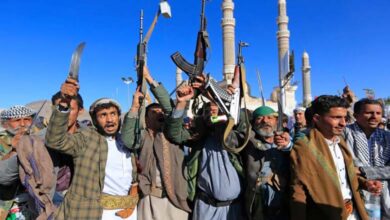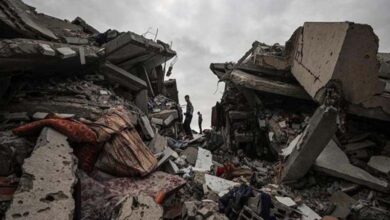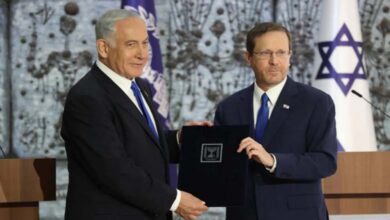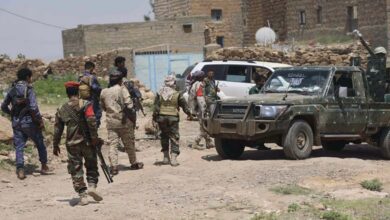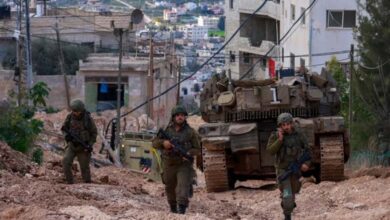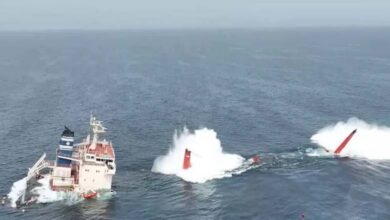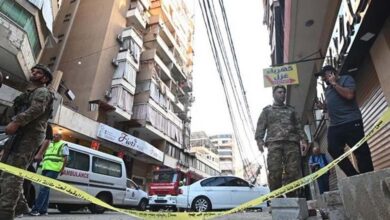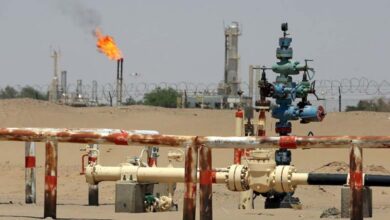Hezbollah relies on new leadership whose members are unknown to Israel
The new leaders of Hezbollah were previously lower-level operatives, while the leadership operates in complete secrecy.
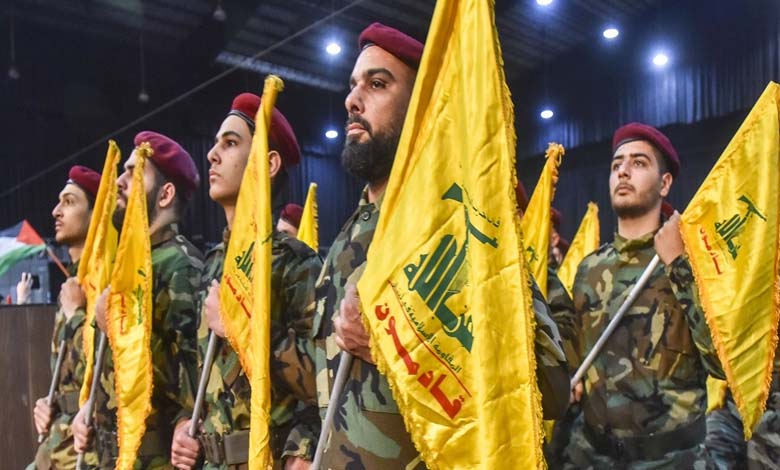
Lebanese Hezbollah has established new leadership to manage the battle against Israel, composed of obscure figures unknown to the Israeli state. The group has also bolstered its ranks with military commanders, indicating that the Iranian-backed organization has completed its preparations for the new phase it recently announced, vowing to “pain” Israel. This is especially concerning as Hezbollah possesses a significant arsenal of missiles and drones, many of which have yet to be used.
-
“New Phase”: Hezbollah Announces Escalation of Clashes with Israel
-
Iran Faces a Dilemma… Who Will Be the Successor to Hezbollah?
A report from the New York Times, citing an Israeli official, noted that “the new leaders of Hezbollah were previously lower-level operatives, which allowed the group to continue fighting against Israel despite its heavy losses.”
According to the same source, “the Lebanese group achieved notable successes this week, including a deadly drone attack that targeted a training base of the Golani Brigade in southern Haifa, as well as the targeting of Prime Minister Benjamin Netanyahu’s residence in Caesarea on Saturday.”
Netanyahu accused Hezbollah of attempting to assassinate him and his wife, vowing that Iran and its allied factions “will pay a heavy price.”
-
Maher Al-Assad Abandons Hezbollah to Avoid Israeli Strikes
-
Finances under fire: Hezbollah faces financial crisis
Hezbollah also launched rocket attacks on the Haifa area, killing one civilian, in addition to an attempt to kidnap a commando soldier from the Israeli army.
The report indicates that these developments signal a gradual recovery of Hezbollah on the battlefield after seeing its capabilities diminish recently due to the elimination of several of its top leaders in Israeli strikes, including its Secretary-General Hassan Nasrallah and his potential successor, Hashem Safieddine.
Hezbollah is preparing for a prolonged war of attrition in southern Lebanon, particularly after a new leadership structure took over, directing rocket launches and combat operations.
-
Hezbollah Prepares for War of Attrition with New Leadership to Lead the Battle
-
One of them was a missile system commander… Israel kills Hezbollah leaders
Sources inside Hezbollah told Reuters that the group still holds a significant stockpile of weapons, including precision-guided missiles that have yet to be used.
Western diplomats have expressed concern that Israel’s limited operation in Lebanon could escalate into a long-term war and urged Israel to leverage its successes to secure a deal that would push Hezbollah away from the border.
After the assassination of Hezbollah’s Secretary-General Hassan Nasrallah in the southern suburbs of Beirut, the group established a new operations center within 72 hours, allowing the group to continue fighting under direct orders.
-
Hezbollah Foils Israeli Ground Incursion Attempts
-
Disengagement from Gaza: Did Hezbollah accept in private what it publicly rejected?
A Hezbollah field commander stated that the group’s fighters were acting “according to their capabilities on the front lines,” noting that “the new leadership operates in complete secrecy.” He described the current leadership structure as “a small circle” in direct contact with the battlefield.
On the ground, Israeli warplanes renewed their intense airstrikes on the southern suburbs of Beirut this Saturday evening, after a three-day pause.
The Lebanese National News Agency reported that Israeli jets carried out extremely violent strikes on Haret Hreik and the Bourj al-Barajneh area in the southern suburbs.
-
Hezbollah and Revolutionary Guard Experts under Houthi Suspicion: New Arrangements in Yemen
-
Caesarea under Fire: Hezbollah Rockets Near Netanyahu’s Home
The local Lebanese TV channel Al Jadeed (private) also reported that an Israeli airstrike targeted the Choueifat Amara area in the southern suburbs.
The Israeli army stated on Saturday that it had struck several weapons storage facilities and a command center for Hezbollah intelligence in the southern suburbs of Beirut.
It also announced the destruction of an underground command center of Hezbollah‘s elite Radwan force using more than 100 tons of explosives.
According to Ynet‘s military correspondent, Ron Ben Yishai, Hezbollah still holds a large arsenal of thousands of short- and medium-range rockets and shells.
-
Hezbollah Engages in Violent Clashes with Israeli Army near Border
-
The Role of Hashem Safi al-Din in Hezbollah: Is He Considered the Second in Command After Nasrallah?
He added: “The potential of explosive drones, which are essentially small cruise missiles, remains largely untapped.” He continued by saying, “While Hezbollah has spoken about deploying drone swarms, it has yet to launch more than five at once against a single target.”
Hezbollah is expected to increase its use of explosive drones, as they are more difficult to detect and intercept when flying at low altitudes over terrain and offer greater precision.
According to the same source, “Netanyahu‘s residence in Caesarea was a relatively easy target for Hezbollah due to its known and public location.” He also pointed out that “this incident shed light on a new phenomenon: sirens going off in some areas without simultaneous alerts from the Home Front Command application.”
-
The Sole Survivor of Hezbollah’s Leadership: Who Is Abou Ali Reza?
-
A $7 Million Bounty on Its Leader: What Is Hezbollah’s Most Dangerous Unit, “The Shadow Unit”?
He added that “this development is part of a new policy aimed at countering Hezbollah’s increasing use of drones, as well as pro-Iranian militias in Iraq and Syria. This policy involves issuing warnings in areas containing potential military or civilian targets, even if the drones do not pose an immediate threat but could follow a flight path toward these sites.”


